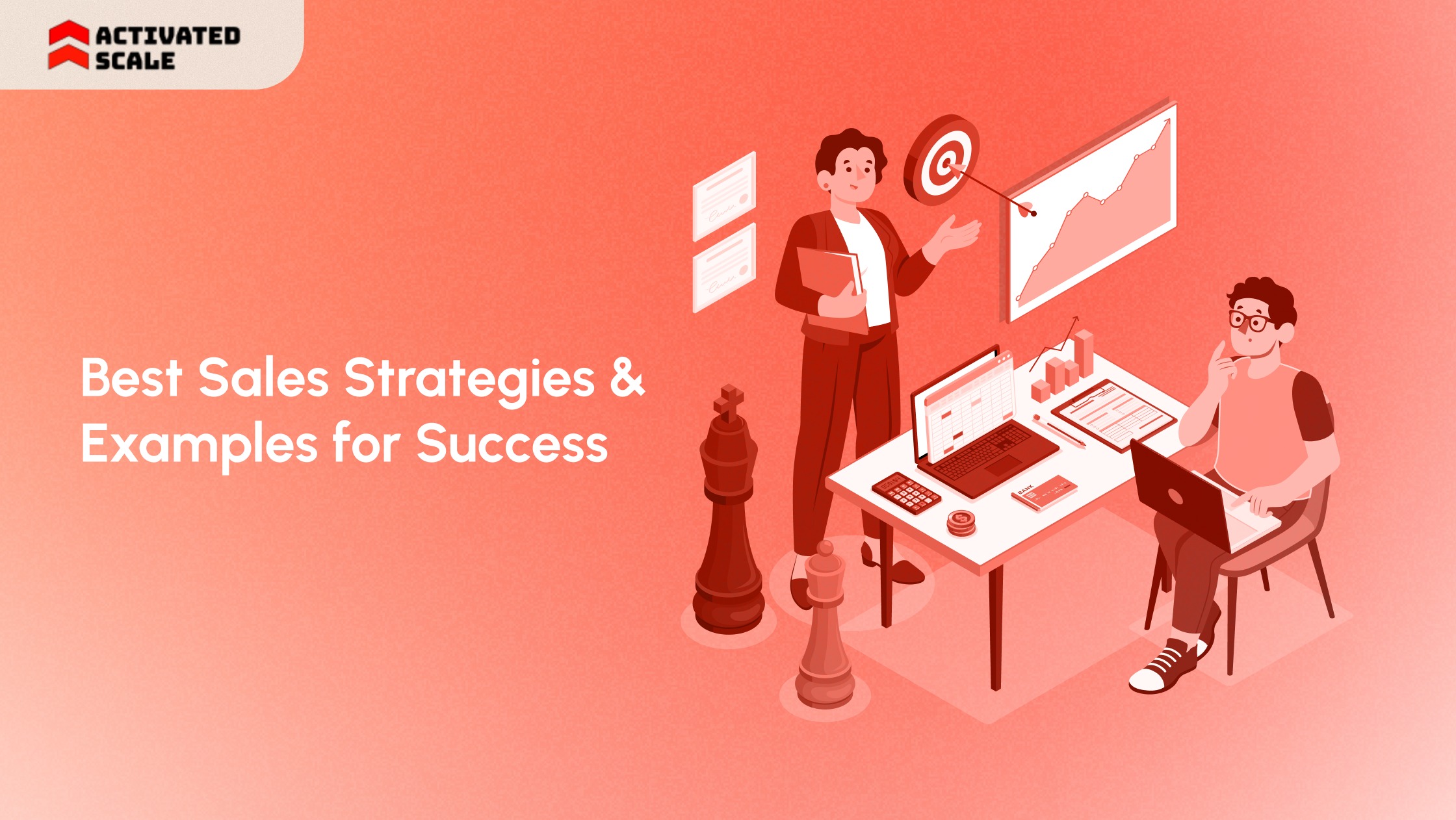Is your startup struggling to close deals despite initial interest?
According to HubSpot's 2024 State of Sales Report, a survey of 1,477 sales professionals conducted in July 2023, found that only 21% of deals convert into sales on average.
But here's a surprising reason why so many deals fall through: a whopping 28% of prospects walk away because they haven't established enough trust with the salesperson.
Sales effectiveness goes beyond just closing deals. It's about building trust, guiding prospects through the buying journey, and ultimately achieving your business goals. It's the difference between spinning your wheels and strategically driving sales growth.
Here's why measuring and optimizing your sales effectiveness is crucial for any business, especially startups. But first, before we head into the crux of the matter, let’s understand a few pivotal aspects about sales effectiveness.
Defining Sales Effectiveness

Sales effectiveness refers to the ability of a sales team to win at a higher rate, with optimal cost and effort, driving the maximum sales possible. It is directly linked to how well your team can engage with prospects, how effectively they can manage the sales pipeline, and how they close deals.
In a simple sense, it’s about doing the right things, at the right time, and in the right way.
Most often, people confuse sales effectiveness with sales efficiency, but there’s a stark difference between them:
Sales effectiveness ensures your sales team is not just closing deals quickly, but closing the right deals that contribute to long-term success.
Importance of Sales Effectiveness
Effective sales strategies go beyond just hitting revenue targets. Here's why it's crucial for your startup:
- Benefits beyond revenue: Sales effectiveness fosters customer loyalty, reduces churn, and generates positive word-of-mouth marketing, leading to organic growth.
- Reduced costs: By identifying and eliminating inefficiencies in your sales process, you save time and resources that can be reinvested in growth initiatives.
- Sales team success: A well-defined and effective sales strategy empowers your team with the tools and knowledge they need to close deals consistently, boosting morale and motivation.
Ineffective sales can have a significant negative impact:
- Missed revenue opportunities: Unqualified leads and a lack of sales focus can lead to lost sales and missed quotas.
- Increased customer churn: Poor customer relationships built on one-time selling can lead to high churn rates.
- Wasted resources: Inefficient sales processes can waste valuable time and resources, hindering your startup's growth.
Metrics for Measuring Sales Effectiveness

With a clearer picture of the profound impact that sales effectiveness can have beyond just revenue numbers, it’s time to shift our focus.
Next, we'll explore how you can measure this effectiveness. By quantifying your sales efforts, you ensure that your strategies are not only felt but clearly seen in their contributions to your business’s success.
Key Performance Indicators (KPIs)
- Win Rates: The percentage of deals closed compared to the total number of opportunities.
- Quota Attainment: How often salespeople meet or exceed their sales targets.
- Revenue Growth: Increases in revenue directly attributable to sales activities.
Additional Metrics
- Sales Cycle Length: The average time it takes to close a deal.
- Lead Response Time: How quickly sales teams respond to leads.
- Customer Acquisition Rates: The efficiency of converting prospects into customers.
Improving Sales Effectiveness with Tools and Strategies
Having established the metrics that can guide your understanding of sales effectiveness, the next step is to put this knowledge into action.
How can you improve these metrics? What tools and strategies can you deploy to not only meet but exceed your sales goals?
Sales enablement tools can empower your team and boost sales effectiveness.
Here are some examples:
- CRM systems: Organize customer data, track interactions, and manage sales pipelines.
- Sales intelligence: Gain insights into your target market and competitors.
- Analytics platforms: Analyze sales data to identify trends and make informed decisions.
Strategies to Boost Sales Effectiveness
Aligning sales strategies with overall business objectives and implementing sales enablement initiatives are crucial. These strategies ensure that every sales interaction is optimized for success.
Let’s explore advanced strategies that incorporate data-driven personalization and AI analytics to not only meet but predict customer needs and enhance sales outcomes.
- Importance of Data-Driven Personalization
Imagine each of your sales interactions tailored precisely to meet the unique needs and preferences of every prospect. By harnessing data-driven personalization, you can significantly enhance engagement and conversion rates.
This approach involves analyzing data to understand the behaviors and requirements of your prospects and then customizing communications and offers accordingly.
The result? Your sales team can engage more effectively, resonating with the needs of each customer, thereby increasing the likelihood of conversions and fostering lasting relationships.
- Using AI for Predictive Sales Analytics
Artificial intelligence tools offer you the power to predict your customers' next moves even before they make them, enabling your sales team to identify and capitalize on upcoming sales opportunities.
This isn't just about efficiency; it's about being proactive rather than reactive. By focusing your efforts where they are most likely to yield results, you can optimize your resources and enhance overall sales effectiveness, ensuring that your startup stays ahead in a competitive market.
- Implementation of Strategic Omni-Channel Outbound Strategies
In today’s interconnected world, your prospects are everywhere – browsing on laptops, scrolling through tablets, and tapping on smartphones.
A strategic omni-channel approach allows you to engage with them wherever they are, ensuring your message is always within reach. By coordinating your sales and marketing efforts across multiple platforms, you provide a seamless and integrated customer experience.
This consistency is key to building trust and comfort, critical elements in closing deals and achieving sales success.
- Continuous Sales Training and Crafting Sales Enablement Strategies
Your sales team is the engine of your startup, and like any high-performance engine, it requires regular tuning and upgrades.
Continuous training and the implementation of robust sales enablement strategies ensure that your team is equipped with the latest skills and tools needed to succeed.
Investing in your team’s development is not just about enhancing their capabilities but also about instilling confidence and fostering an environment of continuous improvement.
Thinking of hiring salespeople? Consider the benefits of fractional sales talent.
Activated Scale connects startups with experienced, vetted fractional Sales Development Representatives (SDRs) who can manage the full sales cycle for you, generating leads, qualifying prospects, and nurturing them towards conversion. This allows you to scale your sales efforts without the risk and cost of hiring full-time employees.
Developing and Managing the Sales Process
Equipped with the right tools and strategies, your sales team is poised to achieve greater effectiveness. However, understanding and managing the sales process itself is just as crucial.
In this section, we’ll break down these stages and discuss key strategies for maximizing effectiveness throughout the sales cycle.
- Lead identification: This involves finding potential customers who might be interested in your product or service.
- Lead qualification: Not all leads are created equal. Qualifying leads helps you focus your efforts on those most likely to convert into paying customers.
- Building relationships: Sales aren't just about transactions; they're about building trust and rapport with potential customers. Effective communication and understanding their needs are crucial here.
- Presentation and proposal: Clearly communicate the value proposition of your product or service and tailor your pitch to address the specific needs you uncovered during qualification.
- Objection handling: Be prepared to address any concerns or objections potential customers might have.
- Negotiation and closing: Work collaboratively with the customer to reach a mutually beneficial agreement and close the deal.
Success at each stage relies on strong communication skills, a deep understanding of your product or service, and the ability to build trust with potential customers.
Read: Why You Should Hire Fractional Sales Talent
Conclusion
In summary, sales effectiveness is the cornerstone of sustainable growth for any startup. By defining clear metrics, employing the right tools, and continuously refining your strategies based on data-driven insights, you can significantly improve your sales outcomes.
At Activated Scale, we understand the importance of effective sales strategies and offer a unique platform where you can connect with experienced fractional sales talent tailored to your business needs.
Ready to enhance your sales effectiveness and drive your startup's growth? Book A Demo with us today and discover how our network of vetted, experienced sales professionals can transform your sales strategy and help you achieve remarkable results.
The Ultimate Guide to Hiring a Salesperson!
Get the step-by-step guide to hiring, onboarding, and ensuring success!
_edi.png)




